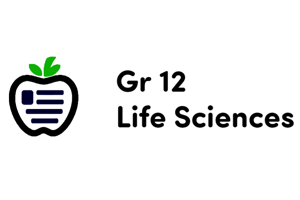Podcast
Questions and Answers
Define gametes.
Define gametes.
Sex cells. A mature haploid male or female germ cell that is able to unite with another of the opposite sex in sexual reproduction to form a zygote.
What is a female gamete?
What is a female gamete?
Female gametes are also called eggs or ova. They are created during the cellular reproduction process known as meiosis.
What is a male gamete?
What is a male gamete?
Male gametes are called sperm.
Which cells are gametes?
Which cells are gametes?
Define diploid.
Define diploid.
Define haploid.
Define haploid.
What is the difference between a haploid cell and a diploid cell?
What is the difference between a haploid cell and a diploid cell?
What are all the cells that are diploid?
What are all the cells that are diploid?
Which cell is a haploid cell?
Which cell is a haploid cell?
Haploid cells come together to form what type of cell?
Haploid cells come together to form what type of cell?
Define fertilization.
Define fertilization.
Which cell is included in the fertilization process?
Which cell is included in the fertilization process?
Define sexual reproduction.
Define sexual reproduction.
Define crossing-over.
Define crossing-over.
Identify where crossing-over takes place.
Identify where crossing-over takes place.
How does crossing-over affect genetic variation in the offspring?
How does crossing-over affect genetic variation in the offspring?
What is an allele?
What is an allele?
Define genotype.
Define genotype.
Define phenotype.
Define phenotype.
Describe the difference between the terms phenotype and genotype.
Describe the difference between the terms phenotype and genotype.
What are the genotype letters for BB, bb, and Bb?
What are the genotype letters for BB, bb, and Bb?
Describe the difference between the terms heterozygous and homozygous.
Describe the difference between the terms heterozygous and homozygous.
What is the difference between a dominant allele and a recessive allele?
What is the difference between a dominant allele and a recessive allele?
Flashcards are hidden until you start studying
Study Notes
Gametes
- Gametes are mature haploid sex cells capable of uniting during sexual reproduction to form a zygote.
- Female gametes, also known as eggs or ova, are produced through meiosis.
- Male gametes are referred to as sperm.
Chromosome Sets
- Gametes consist of four daughter cells.
- Diploid cells contain two complete sets of chromosomes from each parent.
- Haploid cells have one set of chromosomes, with the human haploid number being 23.
- Key distinction: haploid cells have one set of chromosomes, while diploid cells have two sets.
Fertilization
- Fertilization is the process where male and female reproductive cells fuse to create a zygote, marking the beginning of a new organism's development.
- During fertilization, sperm binds with the secondary oocyte, and their nuclei combine to form a diploid cell.
Types of Reproduction
- Sexual reproduction involves the fusion of sex cells and mixing genetic information from two individuals of opposite sexes.
Genetic Variation
- Crossing-over is the exchange of genetic material between homologous chromosomes during meiosis, creating non-identical chromatids and enhancing genetic diversity in offspring.
- This exchange occurs during prophase 1 of meiosis, leading to recombinant chromosomes.
Alleles and Traits
- An allele represents one of the variations of a gene, commonly falling into dominant and recessive categories.
- Genotype is the genetic makeup regarding specific traits, whereas phenotype refers to the observable physical characteristics of those traits.
- Heterozygous individuals possess two different alleles for a trait, while homozygous individuals have identical alleles.
Dominance in Alleles
- Dominant alleles are expressed regardless of the presence of other alleles, while recessive alleles manifest only when dominant alleles are absent.
- The Law of Segregation explains the relationship between dominant and recessive alleles, influencing how traits are inherited.
Studying That Suits You
Use AI to generate personalized quizzes and flashcards to suit your learning preferences.




